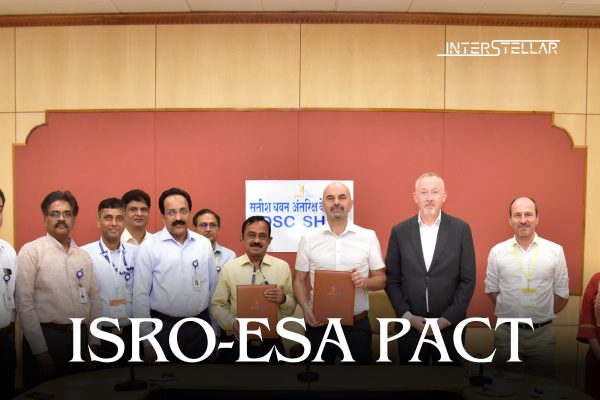ISRO and ESA Sign Agreement for Gaganyaan Ground Tracking Support
On December 4, 2024, the Indian Space Research Organisation (ISRO) and the European Space Agency (ESA) signed a Technical Implementing Plan (TIP) for ground tracking support for India’s Gaganyaan missions. This agreement enhances international collaboration in space exploration and ensures robust communication during the mission’s critical operations.
Key Details of the Agreement
The TIP was signed at the Satish Dhawan Space Centre (SDSC) by Dr Anilkumar A K, Director of ISTRAC (ISRO Telemetry, Tracking and Command Network), and Mr Dietmar Pilz, ESA’s Director of Technology, Engineering & Quality and Director of ESTEC, Netherlands. The event was attended by ISRO Chairman Dr Somanath S and Mr Didier van der Hasselt, Belgium’s Ambassador to India.
The agreement enables ESA to provide ground station support for the Gaganyaan missions, ensuring uninterrupted data flow and reliable communication with the Orbital Module. This support is critical for monitoring and managing orbital operations during the mission.
Strengthening a Long-Standing Partnership
ISRO and ESA share a history of successful collaboration, having supported each other in multiple space missions. The TIP further strengthens this partnership, setting the stage for future cooperation in space technology and exploration.
Dr Somanath highlighted the significance of such agreements, emphasising their role in advancing the Gaganyaan programme, India’s ambitious human spaceflight mission. The ESA’s expertise in ground tracking and communication systems will complement ISRO’s efforts to achieve mission success.
Future Collaboration in Space
The TIP is a testament to the growing global partnerships in space exploration. With ISRO and ESA committed to continued collaboration, this agreement not only benefits Gaganyaan but also paves the way for future joint initiatives in space technology.
About ESA
The European Space Agency (ESA), comprising 22 Member States, is an international organization that coordinates the financial and intellectual resources of its members to undertake space programmes and activities that exceed the capabilities of any single European nation. ESA’s primary role is to develop and implement a comprehensive European space programme, focusing on understanding Earth, its space environment, the Solar System, and the Universe. It also drives the advancement of satellite-based technologies and services, fostering innovation within European industries. ESA collaborates closely with non-European space organizations and operates under the guiding principle of promoting peaceful cooperation in space research and applications, as outlined in its founding Convention.
ESA’s purpose includes establishing a unified European space policy, aligning national and international objectives, and progressively integrating national programmes into its broader framework, particularly in developing application satellites. The organization also devises industrial policies aligned with its programmes and provides recommendations to Member States. ESA’s membership includes nations such as France, Germany, Italy, and the United Kingdom, with Associate Members like Slovakia and Latvia, while Canada participates in select projects through a cooperation agreement. Countries like Bulgaria, Croatia, and Malta maintain cooperation agreements with ESA, further extending its collaborative reach.





